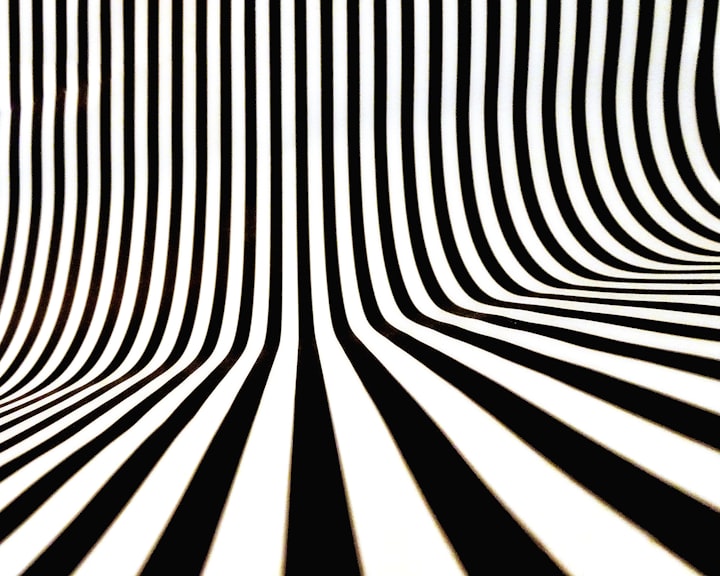The Beatles' Greatest Hits
Worst Album Ever
I'm an old fart, a child of the 60s. The photographs from then show the faces of the sexual revolution (the decade BEFORE hepatitis and HIV that, with oral contraceptives, evoked the sexual revolution. (As Austin Powers said, "Only sailors use condoms, baby.") "Fun, Fun, Fun," as the quintessential American 60s children, the Beach Boys, sang. Fashion exploded with colors that took us out of Kansas and into Oz. Peter Max, Andy Warhol, among others, led Pop Art, Op Art, Minimalism, Conceptual Art, and Performance Art. And the music. The music underwent a sea change from across the sea.
Yet, the 60s had a dark side. It was the time of unheard historical events, like assassinations of leaders and, with it, the killeing of our future: two Kennedys and Martin Luther King. And nameless others trying to get into segrated schools.
In grade school, when it was announced over the intercom that John F. Kennedy had been assassinated, I remember our class breaking into laughter. Not because it was funny, but because of the incongruity of our life and real-life sledgehammering our minds with something that was unexpected and unable to be processed in the usual ways--as the science behind real laughter implies. Unable to reel in real-life into our little minds, the children of the 60s witnessed the end of a national age of innocence--said so many times it's now cliché. But after the relief of the great war ending in the 40s, unprecedented growth and innovation of the 50s, and the sheer fun the 60s seemed to be offering, all enthusiasm ground to a halt as for the first time in generations everyone wondered what the world was coming to.
We are all a result of the culture within which we grew up and came of age. Now I know why the elderly, as "that" time approaches, seem quite ready for whatever next phase is to come: all of their cultural anchors have died. The movie stars they watched--the ones who were the "beautiful people" in their day--are gone. Comedians they laughed with are dead. The heroes and villains who made their history are no longer present or, if so, are no longer relevant.
Relevance. It is the death of relevance that kills you. But it's not murder--it's suicide--proactive, acceptable, and quite comfortably fatalistic.
Yes, the Beatles changed music--even the world. But John Lennon and George Harrison are dead. Paul and Ringo are in their 80s. For me, Hendrix--dead; Morrison--dead; Cass--dead; Petty--dead; Jackson, Joplin--dead. Yet, aside from comedy routines that have grown stale and the A-Listers who are now the B- and C-Listers, the one thing that remains fresh is music, even from the graveyard.
"This Is Your Brain on Music," by Daniel J. Levitin, both a rock musician and a neuroscientist, is a book about being human. Other animals make sounds, even strings of sounds, but the human brain computes the math that makes a tritone harsh and the G major13 happy. No other brain on the planet designs chord progressions to evoke mood and with it, living in the moment. Levitin, in his book, demonstrated that the sound of music isn't just vibration on the eardrum that is perceived as sound; music arrives as data at the ear, surely, but from there it goes to literally every part of the brain--the computer by which we interpret that data. From the cerebellum, the seat of coordination, to provoke dance, to the limbic system to stroke emotion, to the frontal lobes to place the listener into the music existentially.
But the Beatles...
"The Beatles Greatest Hits" would be an album that would be as insulting as it was impossible. This is because the Beatles and their creative juices were an important fabric, if not the infrastructure, of the 60s. It was the perfect storm of musical genius (McCartery), ethereal (even alien) improvisation (Lennon), straining strings (Harrison), and perfect percussive punctuation to perfect songs (Starr).
The Beatles evolved with the 60s. It has been said (well, by me) that the 60s didn't begin until the Beatles exploded in 1963 and didn't end until 1974 with Nixon's resignation. This time epoch coincides with the entire artistic oeuvre of the 60s until it finally ran out of gas. Did the 60s end because the Beatles ended, or did the Beatles break up because the 60s had completed the decade's fulfillment?
Fandom is a powerful cultural mover. Music is a powerful intellectual stimulant. Most enjoyed both for the 15 minutes for which Andy Warhol had predicted everyone would be famous . The Beatles, however, proved Warhol wrong. This flash in the pan began to shine ever so brightly, peaking as a sodium burn by the time the 60s ended.
The first time I heard the Beatles was at the New York Worlds Fair in 1964. (To date myself, this was when the first pushbutton phones, replacing the dial, debuted.) "P.S. I Love You" was playing on a transister radio. I was just a kid. Music to me had always been just a background for movies or just-above-acoustic-subliminal Muzak in restaurants. This song was simple. It was happy. And it told a story. I remembered thinking, I like that. A lot. From then on I was doomed. But nothing prepared me for the musical trip I was preparing to take. I was an adolescent and now I was on my way to beginning my musical maturation.
More than pleasant, Beatle music was fun. Very Pop in the beginning, so being a whore for fun, it entertained me. This is something music had never done to me before. They came on Ed Sullivan, and parents couldn't understand; but I did. The Beatles were with me, making fun for me, in a way I could continue any time I placed an earworm in my mind.
Please Please Me
"I Saw Her Standing There": She was just 17, you know what I mean. Yep. I knew exactly what you meant.
"Please Please Me"; the beginning of the cleverness that used wordplay so expertly to cement together the melody.
"Love Me Do"; what the hell? This, to ears used to only the Muzac before it, was just weird. But there was something weird and even dangerous about something you couldn't get. At first. Like tiptoeing toward the abyss. Then it imbued into you, with the musical tension built until an unlikely harmonica dueted with McCartney's summation of just 3 syllables.
"P.S. I Love You" and "Do You Want to Know a Secret?"; young love and longing, the titillation of infatuation. I was only recently post-pubescent at the time, so you can imagine how these put me into a bit of a fantasy.
"There's a Place"; the debut of the 3-part harmony of the Beatles that would serve as a signature of their sound: crooning (McCartnry) + edgy, even acerbic (Lennon) + sardonic (Harrison).
After listening to the Please Please Me album, you could clearly see that these songs came from the same session--4 minds working as one. And you also came away thinking, They're good. Really good.
Now I know I could cherrypick songs from each album, but this isn't a piece about how great this song or that song is. Instead, the sequence of albums is the message here. Read on.
Meet the Beatles! (1964) and The Beatles' Second Album (1964) are forever confused with Introducing the Beatles (a Capital Records misstep that allowed these songs to be published by Vee Jay records--I wonder who got fired). The discrepancy between the early releases and the disparity between the US albums (12 songs, max!) and UK albums meant extra transition releases (a cheap capitalistic trick) had overlapping playlists.
A Hard Day's Night (1964) This was supposed to be just an exploitation to push the movie. Turns out the movie was great, but the music was really great. Gone was the simple strumming + melodies, in lieu of a maturing craftstmanship that would always be (as there was a new album every 6 months) lightyears ahead of the previous recording sessions.
Beatles '65 (1964) and Beatles VI (1965) were overlap albums to clean up the holes left by the differing US and UK inclusions.
Help! (1965) Another attempt to exploit a movie, which wasn't that good but, again, the music soared to new heights. Introspection peppered the talent as the pop song broke out of its tidy one-size-fits-all mold. This is the first inkling that you were no longer listening to the same group of "English invasion mopheads," albeit a brilliant group of English invasion mopheads. These guys were something different altogether--from themselves of the past.
Rubber Soul (1965) Not really an acoustic album, but you came away with that vibe. Clean, professional, and breath of fresh air. The stories, the lyrics, and the messages had launched the material into the stratosphere, and you could almost hear every finger pick, every strum, every mixed sound separately in different parts of your brain while you, the human being, paid attention to a consortium of brilliance in which the sum far exceeded the simple sum of the parts. (The only other album that seemed to do a "re-set" of the artist, as powerfully as this one did, was David Bowie's Pin-Ups.)
Yesterday and Today (1966) Another "spillover" album to catch up with the US vs UK different versions of previous albums.
Revolver (1966) Now we're talking.
This album came out the same year, yet you could tell it wasn't from the same sessions. Or even the same people. There was something different happening here. What-the-Hell had now snatched you convincingly--if not violently--into What-the-Fuck-land. The difference? No touring. They were now strictly studio artists with all of the perks that came with that-- freedom to explore, the exhilartion and adventure of sonic innovation, and the time for perfection. George Martin's commanding knowledge of orchestration impregnated the already-brilliant production value with the full sound of everything Western civilization offered, from the timbre universe of classical instruments and the chromatic scale. The experimentation was wild and even dangerous. When you finished listening to the album with Tomorrow Never Knows, you knew the next ride on the Beatles train was going to a place never gone before and from where you'll never return. They didn't disappoint.
Sgt. Pepper's Lonely Hearts Club Band The world changed with Sgt. Pepper's. Now "grownups" listened. The Beatles wore mustaches, so the male world began wearing mustaches. Their unifors were colorful, and Carnaby St. and trendy King's Road exploded. This was no longer pop music. Theyj were no longer just songs. This was "music" music, the top of the musical evolutionary pyramid on all levels--sonic lushness, tracks bespoken with unusual but Goldilocks instruments, pitch alterations and tempo experimentation. But nothing was false--each "trick worked" to catapult each track into perpetuity. You just have to listen to it from beginning to end to "get it." And then it wraps up with the Sgt. Pepper Reprise, but it's not over. You aint heard nothin' yet.
A Day in the Life, surprisingly simple for how it actually sounds, brings home pathos, sadness, despair, and how we all navigate among them with--except for an entire orchestra's crescendos--an adventure punctuated by Ringo's brillian drum fills, a haunting piano phrase at all the right times like the nudge of an elbow, a change in tempo to establish a new "gear," and a quotidian middle story by McCartney that allows you to look with clarity into both his and Lennon's head. Three grand pianos pound out the resolution of the built-up tension with a safety-net return to the home note.
Magical Mysgtery Tour Another clean-up album of singles, two of which may be the most amazing songs the Beatles ever recorded, Strawberry Fields Forever by Lennon and Penny Lane by McCartney. George Martin had always regretted not including them with Sgt Pepper, but what would he cut? Simply add them? The album was already 45 minutes and simply would never work as a double album. Yet, they are forever associated with the Pepper sessions because they fit in perfectly. Did I mention All You Need Is Love? Read the words to this song--what lyrical genious to use in the first, ever live world-wide broadcast evern done.
The White Album Instead of the record company playing catchup, the Beatles themselves exploded with a double-album offering of their own backlog of material. The sheer size of the product led one to believe they just dashed all this stuff out, but a closer listen to each track convinces you that they put as much intellectual and innovative effort into the songs, in continuity of their progression as artists. The range of song styles is staggering. While Harrison had always taken a back seat to the Lennon/McCartney songwriting team, he now came into his own, breaking through the one-or-two song allowance he had been levied up until now. Yes, Revolution No. 9 is a bit narcissistic (are you listening, Yoko?), but who cares? The only thing different about this release is that it's not important to listen to all of the songs in order, unlike how the songs on their other studio albums interrealted in some mysterious sequential whole. These all stand autonomously.
Abbey Road A lot of tension went by the wayside as the Beatles, hostile at worst, estranged at best, went back into the studio and re-assumed their work ethic. There, they rose to the occasion to make one of the finest albums ever recorded. Perfection of melodies, lyrics, heavenly harmonies instrument mastery, production genious, and a gestalt that made it necessary to listen from the first song to the last to get it. Did I mention George Harrison? At last, he was truly "in the club." Abbey Road was the Beatles' final effort, and it showed the heights to which they had aspired.
The albums that followed were either gimmics (Let It Be as a rooftop concert) or explotation of singles and leftovers, although the gimmics and explotation were all "Beatle-quality," to say the least. Mix that with some records of the century, e.g., Lady Madonna, Let It Be, Long and Winding Road, Across the Universe, etc.
BACK TO THE POINT
As the Beatles moved, the world moved with them. By design or not, they became the posterboys of all of the important cultural revolutions--sexual, political, anti-war, the love generation, and cool.
Once, my 5-year-old son saw a picture of them and said, "I can't stand those guys." I asked why. "Because they think they're just the coolest guys in the world." I replied, "The were." And that's the thing. They were the standard-bearers for cool, for the thrill of the innocent fun that comes with not-so-innocent notoriety; and because we climbed into the inner grooves of every record, we felt we were friends with them. Friends with the Beatles--how cool was that between 1963 and 1972? They pefected the pop formula and then shattered it, and the Phoenix arose with something never seen before. And they did it each album, again and again.
The point of this piece is that to truly understand the impact of the Beatles, listen to each album from first song to last, and listen to each album in the order it was released. Don't make the mistake of listening to their hits or streaming compilations. The 60s was an important decade, and listening to the Beatles this way is one way to experience the thrill, tragedy, and promises that came with this insane decade. You'll hear the stampeding sound of hooves, but don't think horses; with the Beatles, like the famous pedestrian crossing, think zebra.
About the Creator
Gerard DiLeo
Retired, not tired. In Life Phase II: Living and writing from a decommissioned Catholic church in Hull, MA. Phase I: was New Orleans (and everything that entails).
https://www.amazon.com/Gerard-DiLeo/e/B00JE6LL2W/
email: [email protected]







Comments
There are no comments for this story
Be the first to respond and start the conversation.